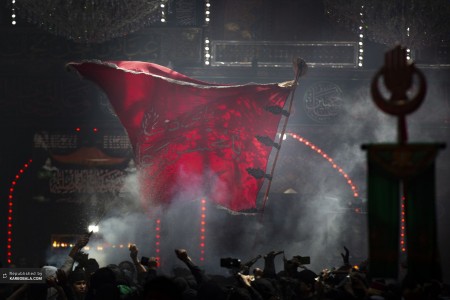
Ashura Celebrations

Ashura is a light to guide mankind from darkness to clarity and a safe ship in every horrible storm knowing this the importance of Ashura celebrations is undeniable. This wonderful event is a portray of excellence of spirit and ethics, mysticism, love, faith, purity, social integration and privacy protection as well as all precious beliefs of life. Everyone who is great, is inevitably dealt with Karbala and Ashura, and this necessitates the importance of research in the field of this culture and the continuous study of this dynamic and lasting movement. Therefore, Shias worldwide perform a yearly cycle of rituals to commemorate the life events of figures.
Holding Ashura Celebrations
When Shias need to hold yearly public and great events, debates on how to organize them emerge. Questions arise on whether participants should interact with the host context, and which strategies should be adopted to express loyalty to Hussein’s cause. Pakistanis and Iranians and Iraqis are the most numerous components of the procession who hold glorious Ashura celebrations.
Ashura in Iraq
Being the country in which the holy shrine of Hussain ibn Ali is located, Iraq goes through different experiences during Muharram and many items symbolize the events or people present at the actual event. One of these items is mawakib.
The mawakib (singular: mawkib) are central to the Iraqi context of the observance of Ashura celebrations, and are a key medium through which the governance of the rituals operates. The term signifies a procession or parade, as well as a group of more than six people coming together to organize and perform one or more of the mourning rituals for Hussein (though not necessarily the procession). There exists two broad types of mawakib: those dedicated to service (al-khidma), mostly providing food and lodging to visitors, which may remain active from ‘Ashura to ‘Arbain; and those dedicated to mourning (al-‘aza), which organize and perform one or more of the five canonical rituals around the death of Hussein.
With a glimpse at the ceremony of Ashura around the globe, it can be clearly observed and easily noticed that this event is of such significance in the history of the world that it is recognized in different countries by individuals, whether Muslim or not, from Iran to Iraq and Italy, and is held through performing different rituals, giving people the chance to mourn a great loss.
References
Evaluation of the Culture of Ashura in Urban Historical Context of Dezful, Iran by Momeni K, Soltani P
Ashura Rituals in Najaf: The Renewal of Expressive Modes in a Changing Urban and Social Landscape by Géraldine Chatelard